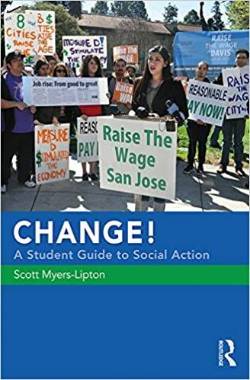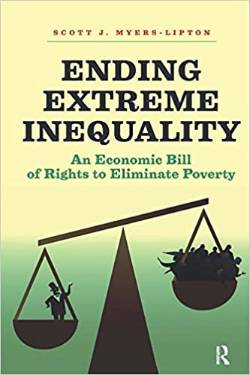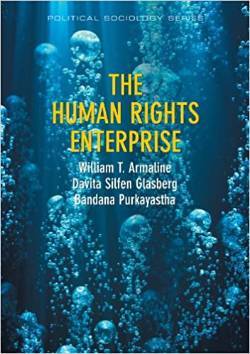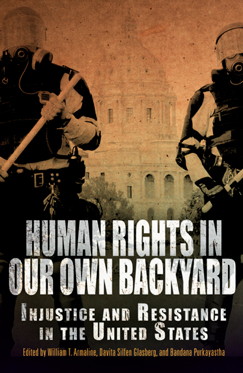Sample Publications and Reports
New Article Published!
Working With Similarities and Differences: Relational Processes in Transdisciplinary Qualitative Research With Diverse Teams
Dr. Michael Dao, Dr. Soma de Bourbon, Melissa McClure Fuller, and Dr. Miranda Worthen
Transdisciplinary research and research teams are becoming increasingly valued in academic spaces. The potential of transdisciplinary research is that the diversity of thought and experience can create robust research processes from project inception, methodological protocol, data collection, data analysis and reporting output. Yet, transdisciplinary research teams can also bring about complications pertaining to conflicting epistemological perspectives, areas of expertise, and objectives for applied impact. In noting the benefits and downsides of transdisciplinary research, this article aims to detail how a transdisciplinary research team navigated a qualitative and participatory longitudinal research project. Drawing from a larger community-based participatory research project, the People’s Budget of San José, we detail the complexities, tensions, and successes of a transdisciplinary research team working to address complex social issues while also being attentive to community needs. Of central importance is that we illustrate how we collaborated as a transdisciplinary research team and also partnered with community-based organizations in a participatory manner. The main methodological contribution is that we highlight the power-sharing, frictions, and collaborative efforts undertaken by our transdisciplinary research team. Our intention in sharing our story is to exemplify how a transdisciplinary team functions so that future transdisciplinary research teams can be guided and build upon the transdisciplinary research process. We conclude that transdisciplinary research consisting of various people is a worthwhile endeavour with tremendous potential, but everyone must work to properly address the tensions and complexities that are likely to arise.
New Books Are Here
Dr. William Armaline, Dr. Grace Howard, Dr. John Halushka, and Dr. Tanya Bakhru from San Jose State University have published new works. Learn more about them below!
Human Rights Praxis and the Struggle for Survival
Dr. William Armaline, SJSU Professor in Sociology and Interdisciplinary Social Sciences
Dr. Willam Armaline, founding Director of the SJSU HRI, has a new book out that explores how and why human rights as a formal legal project has failed to deliver on guaranteeing human survival, let alone universal human dignity.
Click here to learn more about this book. [pdf]
The Pregnancy Police
Dr. Grace Howard, SJSU Assistant Professor in Justice Studies
Dr. Grace Howard’s new book traces the long history of states attempting to regulate and control people who have the capacity for pregnancy—from the early twentieth century's white supremacist eugenics to the end of Roe and the ever-increasing criminalization of abortion across the United States. Check out the book here!
Click here to learn more about this book. [pdf]
Getting the Runaround
Dr. John Halushka, SJSU Assistant Professor in Justice Studies
Dr. John Halushka’s new book focuses on the bureaucratic spaces of prisoner reentry by examining how returning citizens navigate the “institutional circuit” of parole offices, rehabilitation facilities, shelters, and family courts. In the end, he demonstrates the urgent need to shift reentry away from an austerity-driven, compliance-based framework and toward a vision of social justice and inclusion. Check out the book here!
Click here to learn more about this book. [pdf]
Reproductive Justice, Adoption, and Foster Care
Dr. Tanya Bakru, SJSU Professor in Sociology and Interdisciplinary Social Sciences
Dr. Tanya Bakru and her colleague situate the colonial legacies of family separation, what it means to center the right parent, and Reproductive Justice and transnational feminist frameworks in conversation with one another to elucidate a more nuanced and comprehensive approach to recognizing the significance of contemporary examples of family separation. Please see more information on the book here!
Click here to learn more about this book. [pdf]
Additional Sample Scholarly Publications
Racialized Hauntings: Examining Afghan Americans' hyper(in)visibility amidst anti-Muslim ethnoracism.
Nojan, Saugher. 2022
This study introduces the concept of racialized hauntings to refer to the combination of visible stereotypes and invisible effects of imperialism and refugee backgrounds, that shape Afghan Muslims’ racialization experiences with regards to hyper(in)visibility, self-surveillance, and cultural survivance.
We Are About Life-Changing Research
London, Rebecca, Ronald D. Glass, Ethan Chang, Sheeva Sabati, and Saugher Nojan. 2022
This study examines the ethics and politics of knowledge across 15 distinctive community-engaged research projects. We focus our analysis on interviews with community partners and consider their perceptions of research, academic research partners, motivations for partnering, and the benefits and challenges of community-engaged research.
Cross-Cultural Lessons on Anger and Social Connectedness.
Miranda Worthen, SJSU Professor in Public Health
I first started thinking about anger and its role in the experiences of people who have fought in wars when I was in Sierra Leone, about a year after the cease-fire ended the civil war. I was working as a research assistant on a study with girls who had been child soldiers and who had given birth to children during the war. We were living in a community in the west, on the border with Guinea. At first, we met only a few young women. We listened to their stories—about the war, and about what life had been like for them and their children since the end of hostilities.
The transformative and emancipatory potential of participatory evaluation: reflections from a participatory action research study with war-affected young mothers
Miranda Worthen, SJSU Professor in Public Health
The Participatory Action Research (PAR) study with Young Mothers in Liberia, Sierra Leone and northern Uganda which took place from 2006 to 2009 aimed to understand what ‘reintegration’ meant to young mothers formerly associated with armed groups. It also implemented social action initiatives designed by study participants to promote their wellbeing and achieve reintegration. We evaluated the study using multiple participatory evaluation methods, situating evaluation as part of the cycle of research and action. This approach facilitated young mothers’ participation in developing the criteria by which the study and its reintegration outcomes would be judged. We describe each method and what we uniquely learned from using a participatory evaluation approach. We discuss how this approach is well-suited for complex studies, can enhance data quality, increases capacity of all involved in the evaluation and supports the critical reflexivity necessary for participatory studies to succeed.
 CHANGE! A Student Guide to Social Action
CHANGE! A Student Guide to Social Action
Scott Myers Lipton, SJSU Professor, Sociology and Interdisciplinary Social Sciences
This is the first practical social change text devoted to students working in an academic environment. While there are many books about community organizing and social change, there are no college texts focusing on how to provide real-world experience with academic content taking into consideration the flow of the academic term. CHANGE! A Student Guide to Social Action is written specifically for faculty and staff to use with college students with the goal of helping students bring about the change they believe is necessary to make our community a better place to live.
Children Affected by Armed Conflict: Theory, Method, Practice
Myriam Denov and Bree Akesson
Societal turbulence, state collapse, religious and ethnic conflict, poverty, hunger, and social exclusion all underlie children's involvement in armed conflict. Drawing from empirical studies in eleven conflict-ridden countries, including Pakistan, Sri Lanka, Thailand, Colombia, Uganda, Palestine, Somalia, Liberia, Sierra Leone, Sudan, and South Sudan, Children Affected by Armed Conflict crosses cultures and contexts to capture a range of perspectives on the realities of armed conflict and its aftermath for children.
Transformative spaces in the social reintegration of former child soldier young mothers in Sierra Leone, Liberia, and Northern Uganda.
Angela Veale, Miranda Worthen and Susan McKay
A significant but insufficiently considered category of female former child soldiers is those that become mothers as a result of rape or through relationships with “bush husbands”. This article reflects on learning from a participatory action research (PAR) study which aimed to facilitate the social reintegration of formerly associated young mothers and other war-affected vulnerable young mothers in Sierra Leone, Liberia, and northern Uganda.
De Jure vs. De Facto Rights: A Response to “Human Rights: What the United States Might Learn from the Rest of the World and, Yes, from American Sociology”
William T. Armaline, Davita Silfen Glasberg and Bandana Purkayastha
Blau's (2016) argument for a Constitutional Project implies that changes in the U.S. Constitution would ensure fundamental adherence to human rights standards. We disagree with the assumption that legal and institutional instruments are guarantors of human rights practice. Instead, we see rights practices as the function of power struggles that include but go far beyond formal law. Instead, we emphasize an important distinction between de jure human rights instruments and de facto human rights practice, arguing that the focus on de jure instruments and legal discourse misses the significant effect of social movements and direct action that secure rights practice. De jure instruments may codify human rights and enumerate them as important, but they do not carry the authority of enforcement. We argue that the pursuit of human rights must be reframed to include both de jure and de facto human rights terrains. While charitable provisions from generous states can temporarily relieve specific human rights abuses, universal human rights practice requires establishing the fundamental political primacy of the people through the processes of the human rights enterprise.
 Ending Extreme Inequality: An Economic Bill of Rights to Eliminate Poverty
Ending Extreme Inequality: An Economic Bill of Rights to Eliminate Poverty
Scott Myers Lipton, SJSU Professor, Sociology and Interdisciplinary Social Sciences
Poverty and inequality are at record levels. Today, forty-seven million Americans live in poverty, while the median is in decline. The top 20 percent now controls 89 percent of all wealth. These conditions have renewed demands for a new economic Bill of Rights, an idea proposed by F. D. Roosevelt, Truman and Martin Luther King, Jr. The new Economic Bill of Rights has a coherent plan and proclaims that all Americans have the right to a job, a living wage, a decent home, adequate medical care, good education, and adequate protection from economic fears of unemployment, sickness and old age.
 The Human Rights Enterprise: Political Sociology, State Power, and Social Movements
The Human Rights Enterprise: Political Sociology, State Power, and Social Movements
William T. Armaline, Davita S. Glasberg and Bandana Purkayastha
Why do powerful states like the U.S., U.K., China, and Russia repeatedly fail to meet their international legal obligations as defined by human rights instruments? How does global capitalism affect states’ ability to implement human rights, particularly in the context of global recession, state austerity, perpetual war, and environmental crisis? How are political and civil rights undermined as part of moves to impose security and surveillance regimes?
‘The biggest gang in Oakland’: re-thinking police legitimacy
William T. Armaline, Claudio G. Vera Sanchez and Mark Correia
Literature defining ‘police legitimacy’ lacks qualitative research on those populations most often targeted by law enforcement agencies, including people of color in urban areas. This same literature defines police legitimacy as something unquestionable and automatic. Exploration of this concept is limited to strategies to increase public ‘trust’ in police, and public compliance to their authority. We address these limitations in the available scholarship through an analysis of interviews with a diverse sample of Oakland (CA) residents on their experiences with the Oakland Police Department (OPD). Their narratives are presented in the historical context of controversy, budget problems, federal investigations, and racialized violence that help to define the relationship between OPD and Oakland communities. Those interviewed, universally observed OPD’s failure to address the most common crime problems in the city, while others, particularly people of color, found them to be a personal or public threat to safety. Their narratives fly in the face of the manifest functions of municipal police forces, are fully supported by the contemporary empirical history of the OPD, and suggest the illegitimate authority – including the monopoly on the use of force – of organizations like OPD in a democratic society.
A Tale of Two Valleys...The Price We Pay For Living In Santa Clara County [pdf]
County of Santa Clara Office of Human Relations
Santa Clara County has had various identities over the years. Once known as the “Valley of the Heart’s Delight,” and now Silicon Valley, our county has been heralded as a center of innovation, prosperity, and progressive social policies. These images are now challenged with a new and growing reality. Silicon Valley has become, “Inequity Valley.” A steadily increasing number of studies and articles describe the growing disparity between the wealthy and the rest of our county’s residents. Many members of our community are falling further behind as they attempt to keep up with the very expensive cost of living throughout the county.
 Human Rights in Our Own Backyard: Injustice and Resistance in the United States
Human Rights in Our Own Backyard: Injustice and Resistance in the United States
William T. Armaline, Davita Silfen Glasberg, and Bandana Purkayastha
Human Rights in Our Own Backyard examines the state of human rights and responses
to human rights issues, drawing on sociological literature and perspectives to interrogate
assumptions of American exceptionalism. How do people in the U.S. address human rights
issues? What strategies have they adopted, and how successful have these strategies
been? Essays are organized around key conventions of human rights, focusing on the
relationships between human rights and justice, the state and the individual, civil
rights and human rights, and group rights versus individual rights. The contributors
are united by a common conception of the human rights enterprise as a process involving
not only state-defined and implemented rights but also human rights from below as
promoted by activists.
Awarded the 2013 Hirabayashi Book Award by the Human Rights Section of the American
Sociological Association.
Santa Clara County Human Relations Commission Report on the “Public Forum for Family and Friends of Inmates” [pdf]
April 2016
This report specifically addresses the public testimony of inmates’ family and friends, the social and historical context for this testimony, and the legal and policy frameworks for custodial operations and international human rights of prisoners. In addition, the data that underlie our recommendations are consistent with the Jail Conditions: Inmate, Staff & Family Perspectives report presented to the Blue Ribbon Commission (BRC) by the law firm Moscone Emblidge & Otis, LLP. It is also consistent with consultant Aaron B. Zisser’s report to the BRC on the grievance and complaint system in Santa Clara County jails (both reports are included as appendices to this report). Admittedly, the public forum held by the JRC was smaller in scope, yet we arrive at very similar conclusions with some unique emphases derived from family and friend’s testimony.
Issue of Concern: Jail Practices and Conditions in the U.S. (San Jose, CA) [pdf]
April 2016
The SJSU Human Rights Program, directed by Dr. William Armaline and governed by the SJSU Human Rights Working Group, provides human rights centered education, programming, and public policy reporting to San Jose and the San Francisco Bay area. From January-May 2016 Drs. Armaline and Kinney partnered with the Santa Clara County Human Relations Commission [SCC HRC] to write one of two commissioned reports on human rights and constitutional rights violations in the SCC Main Jail, located in downtown San Jose, CA. The following LOIPR shadow report summarizes the findings of these two investigative reports: The Santa Clara County Human Relations Commission Report on the “Public Forum for Family and Friends of Inmates” and the (120) recommendations of the Blue Ribbon Commission on Improving Custody Relations.
Submission Regarding the Death Penalty to the UN Committee Against Torture for the List of Issues For the Sixth Periodic Review of the United States of America [pdf]
June 26, 2016
This report is submitted by Human Rights Advocates, San José State University Human Rights Program, and the Medical Whistleblower Advocacy Network (MWAN). This report urges the Committee Against Torture to address issues related to the use of the death penalty in the United States, which continues to be used in the majority of states though a few states have recently abolished it.